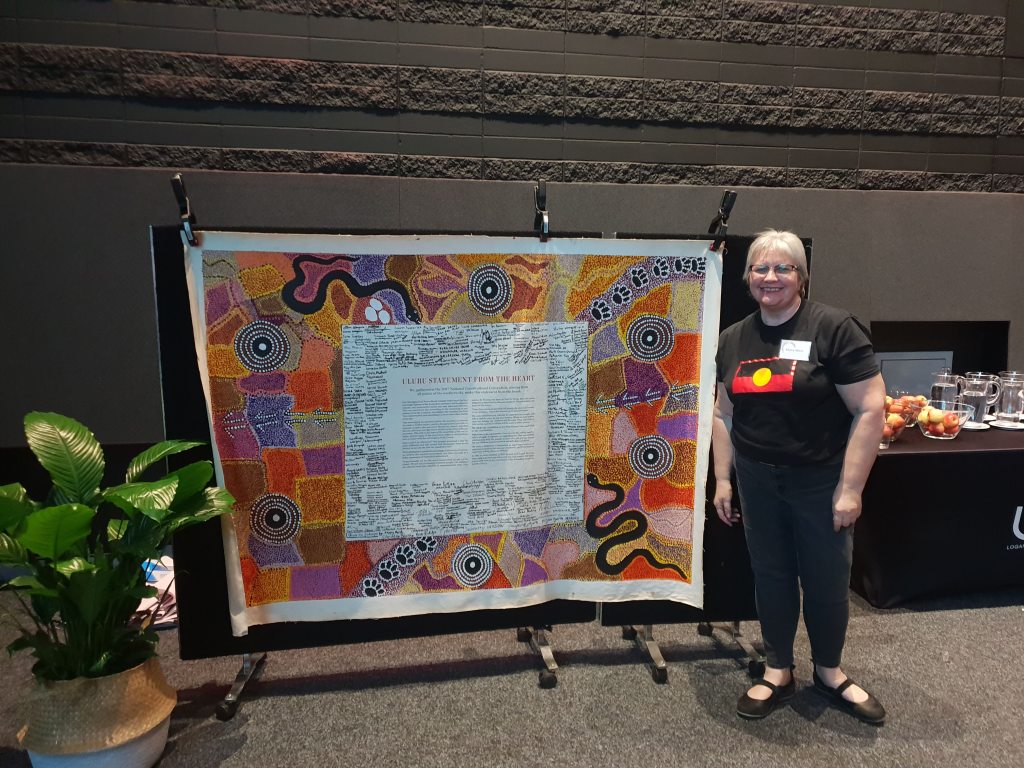Been collecting stories post referendum by listening to friends and hearing first hand from Aboriginal people. There is the one of the elder in his nineties who didn’t talk for a few days after the result and who is depressed with the result and sure he won’t see recognition in his lifetime. There is another one about a teenager who says well I now know white people don’t care about my future. Another story of a woman sobbing and worrying that she will be witness to more suicides in the coming years. There is a story of a woman who has nothing else to give to reconciliation, and of a man who intends to start giving Unwelcomes to Country. I am sure readers have their own stories.
What are the stories we tell ourselves about the Referendum result area we getting seduced by the same myths of the campaign?
Be wary of nodding to people who say there wasn’t enough information, it’s a wild place the post referendum forest, it is not a desert and there are plenty of people sewing seeds for the future. I certainly am!
If we look at the results of the polling booths we can where the votes were high in the binary, and this points to where the work might be focussed into the future. I won’t be the only one looking at these numbers. One in seven voters didn’t bother to vote, around 2.6 million Australians. I will also be having a look at these numbers when I get the chance to see if there is a pattern there, I’m sure the electoral analysts are already preparing to share their insights with us all.
My analysis remains that fear was the primary currency well supported with funds from those who have something to benefit from keeping people in fear, perhaps even something to gain from fuelling anxiety and even racism. I am benefiting and deepening my understanding on how I benefit, not the least I have benefitted from someone, possibly even the State securing land which i now live on, land that was never ceded. I am squatter.
I am learning more about my origin story, thanks to an enthusiastic sibling who is under taking some serious family history digging. Discoveries include the names of ships and barges worked on, illegal activities and oyster saloons, multiple deaths of babies and young children, hospital admissions, mental and physical health illnesses and traversing oceans and this country looking for a place to call home. As these discoveries come to life, I am drawn to the edges. Where were they living, who supported them to stay there, how did they acquire where they lived, or who did they pay rent to or even a mortgage. One thing is clear in all the discoveries, these people across a range of different lineages are all on quest to find a place to belong, a place to raise a family, find friendships, work and build their lives. These people were all embarking on a journey for s better life than the one they envisaged, one that their offspring in future generations would be more prosperous than they had been. And indeed we are…
I wonder if they would have voted yes for the next generation? Being so close to being beneficiaries would they have had a better understanding of what was at stake in any relationship with Aboriginal people. I wish more of us had put ourselves in the shoes of future generations, and voted with them in mind. That is the kind of mycelium we need to be fostering, one which helps people understand their power and contribution for many tomorrows, not just for today.
It is a time for listening for the next invitation.




